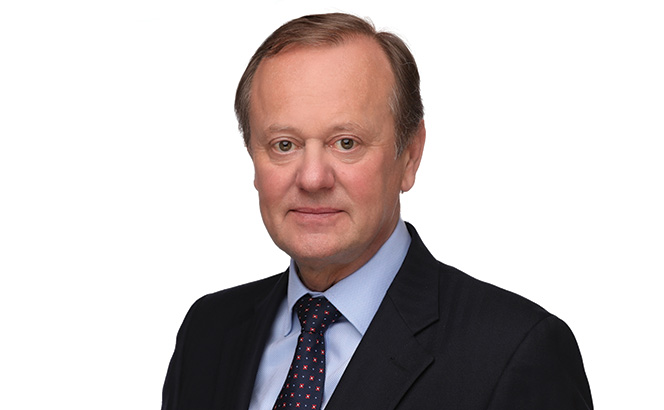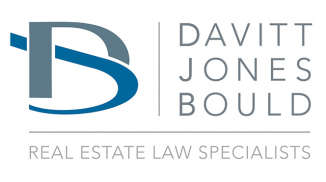Covid-19 has disrupted almost every sector of the economy. Dr Peter Allinson, chief executive of Davitt Jones Bould, asks whether the pandemic has acted as an accelerant to fundamental shifts already at play in the legal profession, and offers his perception of a growing spirit of collaboration in the industry
While the last 12 months has seen as much disruption as any of us have witnessed in our careers, it remains true that the legal profession is used to weathering adverse business cycles. My observation, drawing on many years’ experience, is that the most resilient firms are those that have a strong sense of who they are, what they do best, and truly where their core business is. If that is the case, then they can ride out the worst of the ‘boom and bust’ and avoid the need to treat their people as a ‘disposable’ item.
We are already seeing the industry adapting business models and processes to improve cost-efficiency and become more flexible and responsive to the fluctuations in demand. From northshoring and the outsourcing of legal processes, to automation and the exploration of AI, change is happening. Beyond this, I predict that coming years will see an ever-greater shift to ‘buddying up’ and consortia working, reflecting practises that are the norm in the commercial world. Already this year there have been reports of how escapees from Big Law are establishing successful boutique outfits. There is plenty for clients to love about boutiques, often starting with competitive pricing.

‘Supporting a wide range of law firms sits comfortably alongside us working directly for our own clients. For us, it is the nature of the client which is important.’
Dr Peter Allinson, Davitt Jones Bould
The concept of a client working with a range of firms to achieve quality legal support, at the best value price point is of course not new. Lovells introduced its Mexican-Wave concept in 2002, allowing the firm to retain sophisticated property work at City rates, while outsourcing more routine instructions to regional firms, at lower rates.
As real estate specialists, at Davitt Jones Bould we have long operated in this space, providing at one end of the spectrum routine estate management support or real estate due diligence to full-service firms, and at the other end, taken on the role of outsourced real estate department to specialist firms who have no real estate lawyers at all. Supporting a wide range of law firms sits comfortably alongside us working directly for our own clients. For us, it is the nature of the client which is important; working directly for a client or indirectly through a partner law firm is, for us, a technicality. The respect for who the client ‘belongs’ to is paid in the same way, or more, as it would be between partners in a full-service firm. After all, if we didn’t respect the client owner and attempted to create a direct relationship then we would jeopardise a whole stream of work supporting and partnering with other firms.
Although, or even because the concept is not new, my feeling is that this is one of the areas where the profession must evolve to offer the best possible service to clients. Currently, outsourcing tends to come about in two ways: either a partner at a full-service firm will anticipate a pinch point and reach out to a friend, often a former colleague, at another firm and ask for some ad hoc help; or the arrangement operates on a ‘you scratch my back…’ basis where work flows both ways between two firms. The reality is that neither of these approaches put the client first, and they have had their time.
In fact, what full-service firms should be saying to their clients is that they have taken a conscious decision to partner with x specialist which offers complementary expertise to their own, as this will result in better value for the client and is scalable at short notice.
A profession as old as ours takes time to change. There are obstacles – not least in my experience the fear among some partners that they must guard access to their clients against all comers – internal or external. Again, this notion is no longer fit for purpose: forward-looking fee-earners understand that delighting clients is the way to ensure they stick around for the longest time, and that clients are less sensitive about who delivers the quality work they require than many lawyers realise. In fact, in some situations collaborative working is demanded by the client – as was the case when Davitt Jones Bould was one part of the legal team, including Linklaters, instructed by HM Treasury and charged with creating the first sovereign Sukuk to be issued by a Western government.
‘What is holding firms back from embracing this model of working, which allows them to focus on their core business and retain the complex, challenging work that fee-earners thrive on, while offering clients the best value service?’ Dr Peter Allinson, Davitt Jones Bould
Does the legal profession have the language it needs to reflect fresh ways of working?
In the commercial world, strategic partnerships and consortia are the norm, whether run over many years, or tied to short-term specific objectives. Consider for example the likes of Fujitsu and Siemens which have regularly collaborated in the tech field, or Oxford University and AstraZeneca partnering to give the world a successful vaccine for Covid-19. These arrangements are nothing out of the ordinary, and I expect that we will begin to see a more transparent approach to joint working in our own profession. As we do so, I anticipate a shift in language to reflect an arrangement which is beneficial for both clients, and the firms involved. Perhaps rather than talking of legal services outsourcing, or sub-contracting, we will begin to recognise these relationships for what they are and talk of ‘certified partners’ which alludes to the quality control and trust in place in such a relationship.
Where the Magic Circle leads, others can follow
What is holding firms back from embracing this model of working, which allows them to focus on their core business and retain the complex, challenging work that fee-earners thrive on, while offering clients the best value service? Well in the case of the Magic Circle, nothing at all. It’s common place for them to suggest specialist firms to provide support on the areas that are not central to their business and for which their own services would not be cost effective to clients.
I believe that firms throughout the profession can learn from the confidence of the Magic Circle, and emulate their approach to communicating to clients how work can be organised to allow everyone involved to perform to their strengths – whether that is leading on sophisticated, high-value corporate transactions, or delivering real estate due diligence to a consistently excellent standard.
What often holds firms back, as well as concerns around sharing or losing a valuable client, is the lack of a clear picture of exactly how the work flow will be managed. I can say from experience that this is simply a fear of stepping into the unknown. From our experience over recent years, I have found that with sensible project planning at the outset between the partner firms a simple set of procedures can be set up, identifying the key people in each and their respective roles. The rest is down to regular and open communications as colleagues. For the client it is a win-win, knowing that their lawyers are taking steps to enhance value and service instead of taking the traditional approach of keeping everything in-house. After all, what better way for a law firm partner to demonstrate their confidence in a great relationship with a client than to suggest that they will be even better served through a strategic joined up delivery with a partner specialist firm.
Successful legal careers don’t all look the same
It’s clear that this model of a specialist team acting as a certified partner to a much larger firm is one that has the potential to become the norm across the sector, with obvious benefits for clients and firms alike.
What of individual lawyers? In the escapees from Big Law examples I alluded to above, in discussing the drivers for senior fee-earners jumping ship to establish their own boutiques, a desire to work outside the bureaucracy associated with large firms, and an anticipation of the freedom that comes with ‘being your own boss’ is clearly at play. What I know is that outside of the flexibility to work the hours they choose, from a location that suits, the pull towards simply continuing to do the work that they love is a powerful draw for some senior individuals at City firms. At a smaller, specialist outfit they can continue to practise in the area where they excel, without the pressure of rain-making or climbing a prescribed career ladder. I regularly field calls from large City firms about helping find a new home for an excellent lawyer, brilliant at what they do in real estate, but who no longer fits the firm. These are the people who have a natural home at DJB. They are the reason why we are able to offer a cost-effective service but one which meshes entirely comfortably with our City partners – an axis which can be difficult for ‘north shore’ service providers whose experience is not comparable.
Reasons to hope
These are, as we are all tired of hearing, unprecedented times and the future, while sure to brighten, is for now uncertain. It is my view, however, that this period will prove to be a crucible in which a leaner, more efficient model for the legal profession will be formed, and one that not only serves clients better, but offers a greater range of choices around career path for hard-working and successful professionals within the sector.
For more information, please contact:
Dr Peter Allinson, chief executive
Davitt Jones Bould
Level 24 The Shard, 32 London Bridge Street, London SE1 9SG
T: 020 7870 7500












